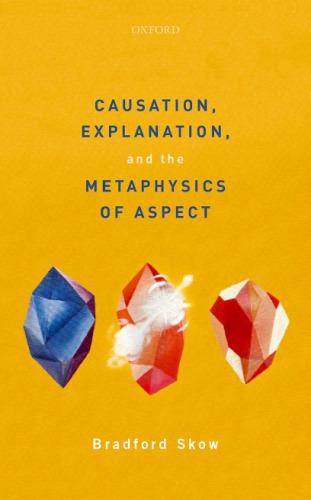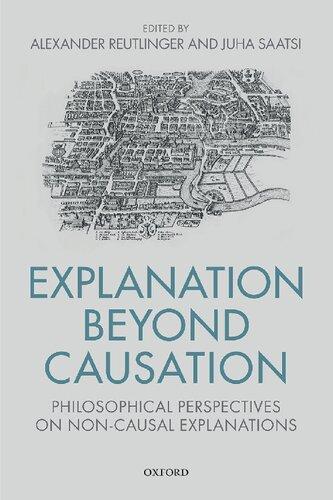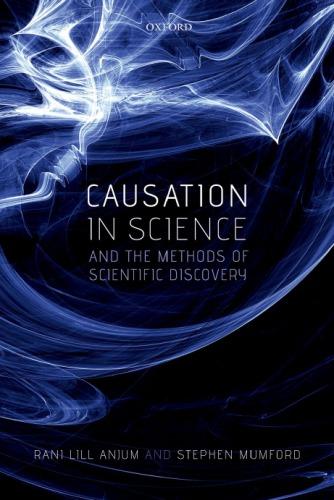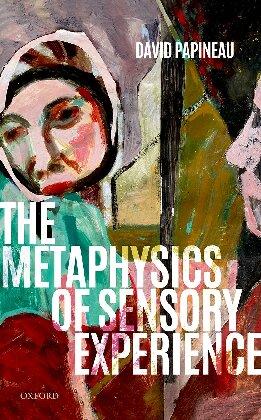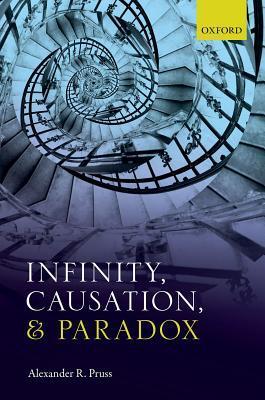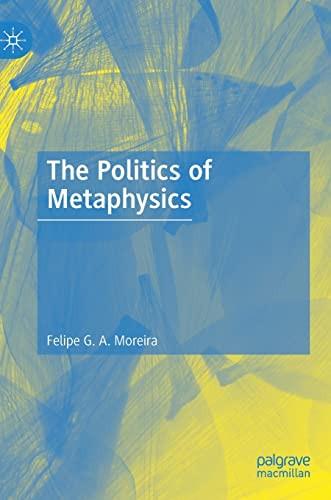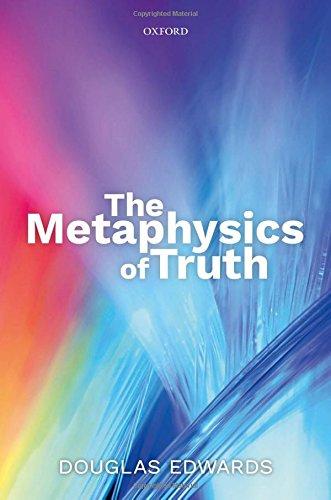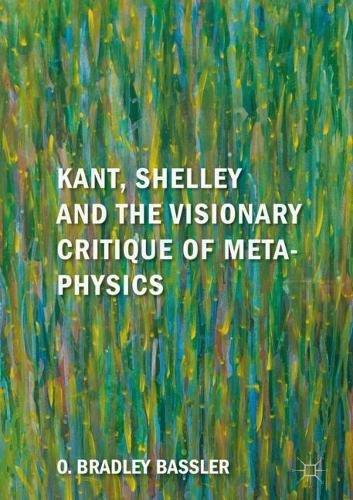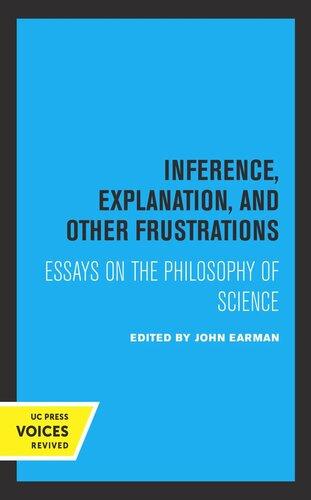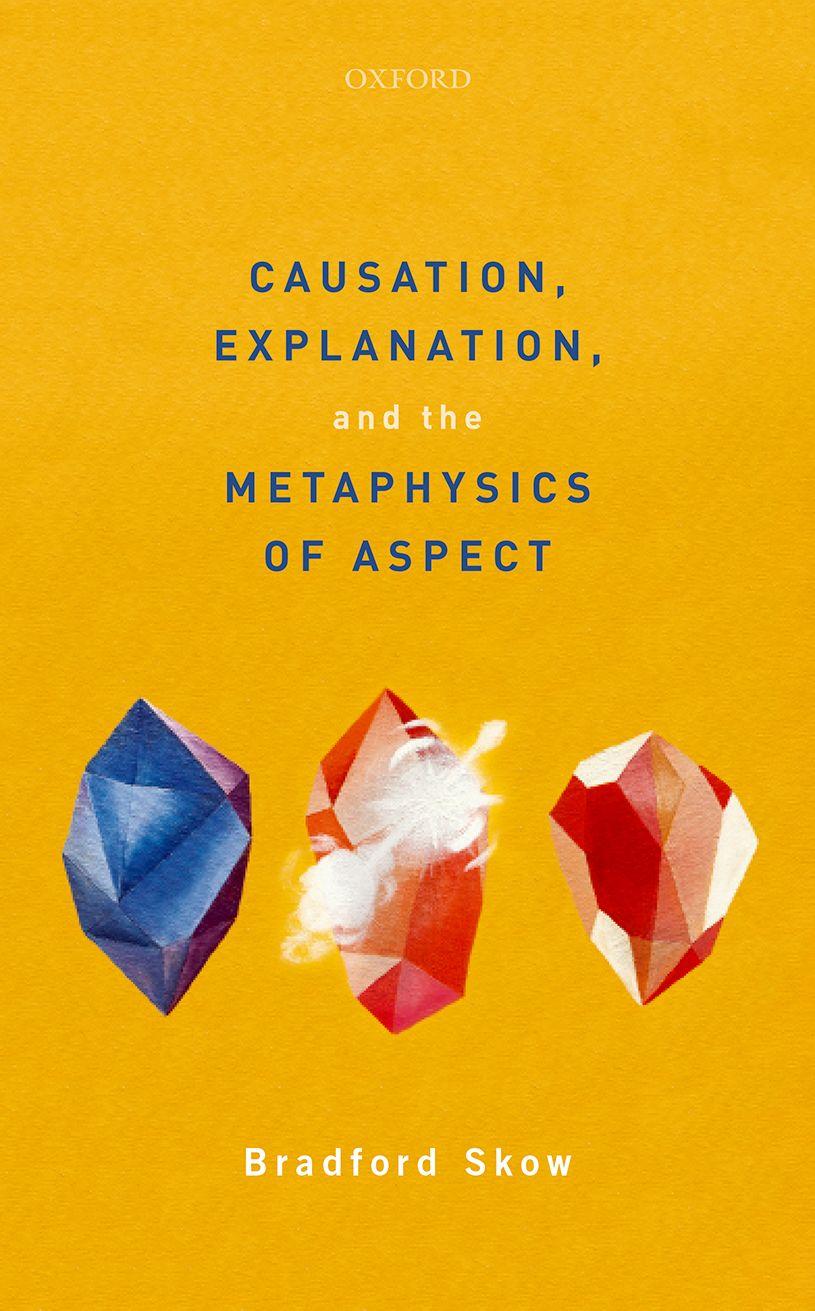1 Advertisement
I
“Causation,explanation,okay.But,themetaphysicsofaspect? What’sthat?”
Greatquestion!InhonoroftheMontyPythonboys,I’llstartwith somethingcompletelydifferent.J.L.Austin,in SenseandSensibilia, observedthatsomethingcanexistwithoutbeingreal,since,forexample,toyduckscertainlyexist,eventhoughtheyarenotrealducks. ThiscommentwaspartofAustin’sordinary-languagingoftheword “real,”butitsparkedinhismindsomethoughtsabout“exist,”thoughts that,sincetheyweren’tdirectlyrelevanttohistopic,heconfinedtoa footnote:
“Exist,”ofcourse,isitselfextremelytricky.Thewordisa verb,butitdoesnotdescribesomethingthatthingsdoall thetime,likebreathing,onlyquieter—tickingover,asit were,inametaphysicalsortofway.(Austin1962,68)
This“tickingover”bitisoneofthegreatrhetoricalmomentsin twentieth-centuryphilosophy,butitsgreatnessmakesiteasytooverlookwhatthefootnoteismissing.PeopleusuallyquoteAustinapprovingly.1Theyagreewithhisclaim.ButAustinjustassertsit.Hedoesn’t
1Anexample:(vanInwagen2009,477).Thetemptationtomakethe mistakeAustinopposedstartsearly.Myoldersonaskedmetheotherday “DoyouknowwhatI’mdoing?”Hewaslyingonthefloorwavinghishand intheair.“No,what?”“Existing.”
argueforit.Onceyourealizethis,somanyquestionsareimmediately urgent:why,exactly,doesn’t“exist”describesomethingthingsdo? Whatisittodosomethinganyway?Whatdoes doingsomething contrastwith,andwhatcanbesaid,ingeneral,aboutwhichthings fallonwhichsideoftheline?
I’llanswersomeofthesequestionsinaminute,butfirstIwantto changethesubjectonemoretime.SupposethatIstrikeamatchand itlights,andthatthematchwouldn’thavelitifIhadn’tstruckit.Now thematchalsowouldn’thavelitiftherehadn’tbeenoxygeninthe room.But,manywanttosay—Iwanttosay—thatonlythestrikingis acauseofthelighting;thepresenceofoxygenisinsteada“background condition”tothelighting.Butthenwhatisthedifferencebetween causesandbackgroundconditions?Whatdidthestrikingdo,thatthe presenceofoxygenfailedtodo,thatearnedthestrikingthestatusofa cause?Onetemptingansweristhatcauseshavetobeevents.Butthis answeronlyhassomethinggoingforitifthestrikingofthematch isaneventandthepresenceofoxygenisnot.Couldthatberight? Thisclaimiseasiertodefendifitcomesfromsomesystematictheory ofevents,ratherthanbeingjustaone-offjudgment.Sowhatgeneral criteriacouldwestateforbeinganeventthatthestrikingwouldsatisfy andthepresenceofoxygenwouldnot?
Thesetwobatteriesofquestionsmayseemunconnected,butIthink thatthereisasingledistinctionthatcanhelpwithboth.Perhaps surprisingly,itisalinguisticdistinction:thedistinctionbetween “stative”and“non-stative”verbs.Therightwaytodrawthe“did something”/“didn’tdoanything”distinction,andtherightwayto drawtheevent/non-eventdistinction,Iamgoingtoclaim,usesthe stative/non-stativedistinction.Amongotherbenefitstodrawingthese distinctionsthewayIwilldrawthemisthattheclaimsthatdrovethe questionsIstartedwithcomeouttrue:existingwillturnoutnotto beawayofdoingsomething,andthepresenceofoxygennottobe anevent.
Thestative/non-stativedistinctionbelongstowhatlinguistscall thestudyoflexicalaspect.Theothertwodistinctionsbelongto metaphysics.TheclaimIwillmake,thatthemetaphysicaldistinctions
“lineup”withtheaspectualdistinction,is,then,aclaimaboutthe “metaphysics”ofaspect.
II
Thisbookconsistsoffouressaysbuiltaroundthreeideas.Twoofthe ideasaretheideasaboutthemetaphysicsofaspectIjustmentioned (ideasIhaven’tactuallystatedinanydetailyet—I’mabouttogetto that);thethirdisanideaaboutexplanation.Eachessaybuildsonthe ideasinadifferentway,soI’vewrittenthemsothattheymayberead independently.(Thisdoesmakeforsomerepetition.)Mygoalinthis chapteristointroducetheideasandtheessays.
Beforegettinganymetaphysicsoutofthestative/non-stativedistinctionweneedmoreexposuretothedistinctionitself.Whichverbs arestative,andwhicharenon-stative?Onetestusesthedistinctionbetweenaprogressiveclause,like“Joneswassinging,”anda non-progressiveclause,like“Jonessang”(adistinctionbelonging to“grammatical”aspect).Forthemostpart,non-stativeverbsmay appearintheprogresivewhilestativeverbsmaynot.Forexample “paddle”isnon-stative,andmayappearintheprogressive:“Joneswas paddlingtheboat”isgrammatical.“Be”(the“beofpredication,”as in“Jonesistall”)ontheotherhand,isstative,andmaynotappear intheprogressive:“Jonesisbeingtall”isungrammatical.Thistest forstativityisnotperfect—stativeverbscansometimesappearinthe progressive.Fortunatelythereareothertests,oneofwhichI’lldiscuss inaminute.2
2ThesearetestsforwhenanEnglishverbisstative.Thestative/nonstativecontrastexistsinotherlanguagestoo.ButIdon’tknowenoughto sayanythingaboutthem.(SabineIatridoutellsmethatthetranslationofthe “be”ofpredicationintosomelanguagescanbenon-stative,whenitbears perfectivemarking,somethingitcannotdoinEnglish.)
Comrie,inhisbook Aspect,discussesboththeprogressive/non-progressive andstative/non-stativedistinction;healsodiscussesprogressiveusesof stativeverbs(Comrie1976,37–9).
Howdoesthestative/non-stativedistinctionhelpwiththequestion ofwhenaneventexists?Itiseasytogiveexamplesofconditionsunder whichthereexistsanevent,hardertoproduceaprincipledtheory thatfitsthem.Ifabombexplodes,theninvirtueofthisfactanevent occurs,namelytheexplosionofthebomb.Bycontrast,eventhough 2 + 2 = 4,itisfalsethatinvirtueofthisfactanevent(“2plus2’s being4”)occurs.Whatisthedifferencebetweenthesetwocases? Moregenerally,canwesayanythingusefulandinformativeabout whichclausescangoinfor“S”tomakethefollowingtrue?
IfS,thenaneventoccursinvirtueofthefactthatS.
Iholdthatyougetatruthfromtheaboveschemawhenyouputinfor “S”asimpleclausewhosemainverbisnon-stative.3
3Theclausemustbeinthepresenttenseandnon-progressive.Ialso endorsethepasttenseandtheprogressiveanaloguesofthisschema.
Thisanswerisnotmineoriginally.Itisakeyplankinthe“NeoDavidsonian”approachtothesemanticsofnaturallanguage.Parsons(1990) defendstheapproachanddiscussesitshistory.Itgetsitsnamefromsome papersbyDonaldDavidson,collectedin(Davidson2001).
Inchapter5Ienduprestrictingthisclaimtoexcludenon-stativeverb phrasesheadedbyraisingverbs;since“fail”isaraisingverb,withthis restrictionthetheorydoesnotentailthatthereare“negativeevents”like failures.Seethatchapterformyreasonsfordoingthis,andadefinitionof “raisingverb.”
ItmaybethatIshouldmakeevenmorerestrictions.WhenSocratesdied Xanthippebecameawidow.If“becomeawidow”isnon-stative,thenmy theorysaysthattherewasacorrespondingevent.Butmanyphilosophers havethoughtthatwhileanevent(adeath)occurredinvirtueofthefactthat Socratesdied,noeventoccurredinvirtueofthefactthatXanthippebecame awidow.I’minclinedtoagree.Mymainreason,whichI’lldiscusslater,isthat Iwantatheoryofeventsthatcomplementsthethesisthateventsarethings thatcancauseorbecaused.“Xanthippe’sbecomingawidow”doesn’tseem likeitcancauseanything,orbecausedbyanything.NowI’mabitunsure aboutwhetherornot“becomeawidow”isnon-stative,butlet’ssupposeit is.TheninoutlineIwanttorestrictthetrueinstancesof“IfS,thenanevent occursinvirtueofthefactthatS”toexcludeinstancesinwhichwhatgoes infor“S”hasasitsmainverbphraseaverbphraselike“becomeawidow.” Theproblem,ofcourse,issayingwhichverbphrasesthoseare.I’mafraid Idon’tknowhowtodothis.(Onesuggestionisthattheyareverbphrasesthat
Thistheorygetsthecasesright.Theverb“explode”isnon-stative: “Thebombwasexploding”isgrammatical.Soifabombexplodes,an event(anexplosion)occursinvirtueofthisfact,aswewant.Butthe “is”ofidentityisstative:“2plus2isbeing4”isungrammatical.So noeventoccursinvirtueofthefactthat2 + 2 = 4.Italsogetsthe examplesthatmotivatethe“cause/backgroundcondition”distinction right.Thetheoryentailsthataneventoccurredinvirtueofthefact thatIstruckthematch,butnoeventoccurredinvirtueofthefactthat oxygenwaspresentintheroom.
Ifthistheoryisright,thenitisnaturaltoaskwhetherthereare thingswhoseexistence“goeswith”thetruthofsentenceswithstative verbsinthewaythat(accordingtothistheory)theexistenceofevents goeswiththetruthofsentenceswithnon-stativeverbs.Isaythatthere are,namelystates.Ifoxygenispresentinaroom,theninvirtueof thisfactastateobtains.States,however,aredifferentfromevents,in avarietyofways;foronething,onlyeventscancauseorbecaused. Statescannot.4(Theseclaimscomeinformoreattentioninchapter5.)
Formanynon-stativeverbs—thisisabitofadigression—thereis anounspelledthesameasthepresent-participleformofthatverb, anounthatappliestothecorrespondingevent.“Stab”isnon-stative, andthenoun“stabbing”(asin“threestabbings”)appliestoeventsthat happenwhensomethingoftheform“XstabsY”istrue.Sowhenthere issuchanounwecangobeyondthebareclaimthatwhen“XVed” istrueandVisnon-stativethentherewasacorrespondingevent; denotemerechangesinsomething’srelationstootherthings.Butthatcan’t beright,since—Ihold—motionisamerechangeinsomething’srelationsto otherthings,yetwhensomethingmovesthereisacorrespondingevent.)For themostpartexampleslikethiswon’tcomeup,soforthemostpartIwill ignorethisproblem.
4Theword“state”isreminiscentofthephrase“stateofaffairs,”aphrase manyphilosophershaveusedtonameonekindofthingoranother(I’mnot surewhetherthey’vealwaysusedittonamethesamekindofthing).ButI’m notusing“state”toabbreviate“stateofaffairs,”sopleasedon’tassumethatthe propertiesotherphilosophershavesaidstatesofaffairshaveareproperties Isaystateshave.IrealizethatthismeansIsayverylittleabouttheproperties stateshave.IthinkIsayenoughaboutthemfortheworkIwantstatestodo.
wecansaythattheeventwasaVing.Butthereisnotalwayssuch anoun.5Still,IwillsometimespretendthatthereiswhenIwantto stategeneralizationsaboutfactsstatableusingnon-stativeverbsand theeventsthatoccurinvirtueofthem.(I’mabouttodothisinthe nextsentence.)
TheclaimthataVingishappeningwheneversomethingisVing followsfrom,butisweakerthan,theclaimthat“XisVing”meansthe sameas“AneventthatisaVingbyXishappening.”Partisansof“NeoDavidsoniansemantics”endorsesomethinglikethisstrongerthesis: theyholdthatnon-stativeverbphrases,andonlynon-stativeverb phrases,areactually(atthelevelof“logicalform”)predicatesofevents (seeParsons1990).Butyoudon’tneedtobeaNeo-Davidsonianto thinkthatnon-stativeverbsgowithevents.Youcanholdthat“Jones iscrossingthestreet”entailsthatacrossingishappeningwithout meaning“AcrossingofthestreetbyJonesishappening.”Youcould beevenmorecautiousandholdthatitentailsthisonlyinconjunction withtheassumptionthattherearesuchthingsasevents.
5“Announce,”forexample,isnon-stative,soifJonesannouncedthat Smithhadwon,acorrespondingeventoccurred.Butthiseventwasnot“an announcingthatSmithhadwon”—thisphraseisnotgrammatical.(Ofcourse wedohaveanounforthiskindofevent:itwasanannouncement.)
Huddlestoncallsnounsthatshareashapewithapresent-participleform ofaverb“gerundialnouns”(2002,81–2).Insomecases,thegerundialnoun derivedfromanon-stativeverbphraseisamassnoun,notacountnoun. “Run”isanexample(asisanyso-called“activity”verbphrase):it’snotright tosaythatwhenJonesran,therewasarunningbyJones.(Massnounscannot takedeterminerslike“a”or“three.”)Idon’tknowwhattomakeofthefact thatsomenon-stativescorrespondtocountnounsandsometomassnouns. Presumablyeventsarethingsthatcanbecounted,soitseemsthatnonstativesthatcorrespondtomassnounsdonot“gowith”eventsorwithstates. Mourelatos(1978)claimsthatnon-stativesthatcorrespondtomassnounsgo withprocessesratherthanevents.Istillmaintain,however,thatthestuffthat activityverbsgowithisinsomeway“event-like,”andsoshouldbegrouped witheventsandnotwithstates.Tosavespaceinthemaintext,butonlyfor thisreason,I’lloftenwriteasifthegerundialnounderivedfromanon-stative isalwaysacountnoun.
Okay,I’vepresentedapartialtheoryofevents.Itisfarfroma completetheory.Itdoesn’tsayanythingaboutthe“identityconditions”ofevents.IfJonescrossedthestreetslowly,hecrossedthestreet, andsince“cross”isnon-stativethetheorysaysthattherewasaslow crossingbyJones,andalsoacrossingbyJones.Butthetheorydoesn’t sayanythingaboutwhethertherewasjustonecrossing,ormore.The theoryalsodoesn’tsayanythingabouttheessencesofevents.Itdoesn’t saywhetherJones’crossingisacrossingineverypossibleworldin whichithappens.Forallthetheorysays,thepropertyofbeinga crossingisapropertythateventhascontingently.6
Whileitisfarfromcomplete,thetheorydoesmakeasubstantive claimabouttheconditionsunderwhichaneventisoccurring.Sowhy believeit?ItgetsthesmallnumberofcasesI’velookedatright.But sodoothertheories.Sodoes,forexample,thetheorythatanevent happenswheneversomethingchanges.Whenabombexplodes,the bombchanges,butwhen2 + 2 = 4nothingchanges.Yettheseare distincttheories:anon-stativeverbphrasecanapplytoyouevenifyou don’tchange.“Standstill,”forexample,isnon-stative,butsomeone whoisstandingstillneednotbechanging.
Whyprefermytheorytothetheorythat“eventsarechanges”?Some mayintuitthattheclaim
whensomeonestandsstillaneventoccursinvirtueof thisfact
isfalse.Imyselfdon’tsharethatintuition.Moreimportantly,Iam interestedinargumentsforandagainstmyviewthatdon’trestsimply onintuitionsaboutwhenaneventdoesordoesnothappen.Thisis becauseIwantatheoryofeventswiththefollowingtwofeatures.First, thelineitdrawsbetweeneventsandstatesshouldbeanaturalone,a 6Lotsofphilosophershaveweighedinontheidentityconditionsand essencesofevents.Forjustafewreferences,Bennettseemstoholdthatwhen Jonescrossedthestreetthentherewasjustonecrossing,whichwasslow (Bennett1988),whileYabloholdsthattherewereatleasttwocrossings,both ofthemslow,oneofthemessentiallyslow,theothernot(Yablo2010).
“jointinnature.”Second,thetheoryshould“playwell”withthethesis thateventscanbecausesandeffectswhilestatescannot.Andwhether thetheorygetsintuitionsaboutwhenaneventhappensbyandlarge rightdoesnotseemtometobearverydirectlyonwhetherthetheory haseitherofthesefeatures.Isaysomethingindefenseofthetheory’s havingthesetwofeaturesinchapters2and5.7
I’vesaidalotaboutevents;IneedtogetbacktoJ.L.Austin,“exists,” anddoingsomething.Hesaidthat“exists”doesnotdescribesomethingthingsdo,butleftusaskingwhatdemarcatesdoingsomething fromitscontrary.Nowitwillbeusefultohaveanabbreviationfor “Xdidsomething,”andIwilluse“Xacted”forthispurpose.Ithink thisisaperfectlygoodthing,andaperfectlyordinarything,tomean by“Xacted.”ButtoforestallconfusionIshouldsaythatthisisnot theonlymeaning“acted”hasinphilosophy.Somephilosophersuse “Xacted”tomeanwhatImeanby“Xactedintentionally”or“Xacted forareason”;ifJonessneezedinvoluntarilyhedidnotact,inthemore demandingsense,butdidact,inmylessdemandingsense,sincehe didsomething,namelysneeze.8
Okay,nowaswiththeevent/non-eventcontrastitiseasytogive examplesoftheact/non-actcontrast.IfJonespaddledhiscanoe,he
7Neo-DavidsonianswillarguethatthetheoryI’vewrittendownfollows fromtheirsemantictheory,andsoanyargumentfortheirsemantictheory isanargumentforthetheoryI’vewrittendown.Iwon’tlookagifthorsein themouth;I’mhappytoendorseargumentslikethat.ButI’mnotgoingtobe givinganyinthisbook.
8Davidson’suseof“action”inhiswork(Davidson2001),andtheliterature thatengageswithit,isrelatedtothemoredemandingsenseof“act”:for him,anactionisaneventthathappenswhensomeoneacts(thatis,does something)intentionally.
ItwasKieranSetiyawhotaughtmethatactiontheoristsoftenuse“act” tomean“actforreasons,”in(Setiya2009);inthatpaperhealsoemphasizes theimportanceofrecognizingthebroadersenseof“act,”andtheconnection betweenactsandnon-stativeverbs.(Thesethemesplayaroleinseveralof Setiya’spapers;theIntroductionto(Setiya2017)hasasummarypresentation.)ItwasreadingSetiya’sworkthatgotmethinkingaboutthisconnection. Thatthinkingledtothisbook.Kieran:Itipmyhattoyou.
therebydidsomething.ButifJoneswassixfeettall,itisfalsethathe therebydidsomething.Whatisthedifference?
Thisquestionhasseveralreadings.Onsomeambitiousreadings,it asksforthefeaturesthataredefinitionalofdoingsomething,orfor thefeaturesthatareuniquelyessentialtodoingsomething(inthe sensethattheyarenotalsoallessentialtosomethingelse).Iwish Ihadanswerstothesequestions,butIdon’t.I’mgoingtoanswerthe questiononalessambitiousreading,areadingonwhichitasks:is theresomeinformativegeneralizationthatseparatesactingfromnot acting?Istheresomeinformativeconditionthatcangoontherighthandsideofthefollowingtogetatruth?
IfXVed,theninvirtueofthisfactXdidsomethingifand onlyif
Myansweristhatyougetatruthifyouput“‘V’isnon-stativeandin theactivevoice”ontheright:
IfXVed,theninvirtueofthisfactXdidsomethingifand onlyif“Ved”isanon-stativeverbphraseintheactivevoice.
Anargumentforthisthesisgoeslikethis.Thefirst,andcentral, premisesaysthat“OnethingXdidwasV”isgrammaticaliffV isnon-stative(andappearsinthesentenceinitsplainform).You canconvinceyourselfofthispremisebycheckinginstances.For example,“OnethingJonesdidwasbreakthewindow”isgrammatical while“OnethingJonesdidwasbetall”isnot,and“break”isnonstativewhile“betall”isstative.Theargumentfortheright-to-left directionthengoeslikethis:suppose(i)thatVisnon-stative,(ii) thatitoccursintheactivevoicein“XVed,”and(iii)thatitistrue thatXVed.Nowif“OnethingXdidwasV”isgrammatical,then“X Ved”entailsitif“Ved”isactive.9By(i)thisisgrammatical.By(ii)and
9Forexample,“stab”isnon-stative,andtheactive“JonesstabbedSmith” entails“OnethingJonesdidwasstabSmith,”butthepassive“Smithwas stabbedbyJones”doesnotentail“OnethingSmithdidwasbestabbedby Jones”(infactthislastsentenceisnotgrammatical).
(iii)itistrue.SoonethingXdidwasV.Butobviously“onethingX didwasV”entails“Xdidsomething.”Nowsinceallthisreasoning wasconductedunderthesuppositionthatXVed,ifwedischargethe suppositionwehavethatifXVed,thenXdidsomething.Ithinkit clearthatitalsoestablishesthatifXVed,then invirtueofthisfact X didsomething(thoughIcan’tprovethisusingatheoryofthe“logic” ofthisuseof“invirtueof”).Theargumentfortheotherdirectionis similar.
Thisargumentisonlyasstrongasitspremise,andthereisaproblem withthepremise:Ihaven’tgivenyouaperfectlyreliabletestfornonstativity.WellIcangiveyouaperfectlyreliabletest:Visnon-stative iff“OnethingXdidwasV”isgrammatical(whenVisputinits plainform).10Butusingthistesttosupportthepremisewouldbeg thequestion.
Thisproblemwiththeargumentisnotimportant.Iaminfacthappy todispensewithargumentandjustdefine“non-stativeverbphrase”as “verbphrasethat,whenputintoitsplainformandinsertedinto‘One thingXdidwas ,’yieldsagrammaticalsentence.”11My“insight” aboutaspectnowbecomes“truebydefinition.”Thisisokay:inthis bookwhatwillmatteristhatitistruethatactinggoeswithnon-stative verbphrases,notthatthisisa“substantive”truth.
Onemightobjectthatwhethersomeonehasacteddoesn’tinany waydependonlanguage,butthatmyclaimdoesmakeitdependon language.Infactthat’snotso.Myclaimmightbeindangerofmaking whethersomeonehasacteddependonlanguageifitentailsthatyou can’tdosomethingwithoutanactivenon-stativeverbphrasebeing
10Szabóregardsthisasthebesttestfornon-stativity(Szabó1994),though thisfactiscompatiblewithhisthinkingitnotperfectlyreliable.Inthe citedpaperhediscussesitsrelationtothe“canoccurintheprogressive”test. 11Thatis,Iamhappytodothisforthepurposesofthisbook.Ithinkthata non-question-beggingargumentthatthistestisperfectlyreliablecouldbe given,butthatdoingsowouldinvolvegoingintomoredetailaboutwhat linguistssayaboutnon-stativitythanwouldbefruitfulhere.
bradfordskow trueofyou.Butitdoesn’tentailthis.12Ifyoudosomething,butthe languagelacksaverbphrasethatdescribesyoursituation,thenyou’ve donesomethingwithouttherebeinganynon-stativeverbphrasethat istrueofyou.
Infact,asmyremarksinthepreviousparagraphsuggest,Iam temptedbytheviewthatthedependencegoestheotherway:whether somethingisanon-stativeverbphrasedependsonwhetheritdenotes anact.ThisviewanswersaquestionyoumayhavehadsinceIintroducedthenotionofanon-stativeverbphrase.Mycriteriaforbeing non-stativeareallsyntactic.Isthereacriterionthatsortsthestative verbsfromthenon-stativeonesintermsoftheirmeanings?Yes(on thisview):thenon-stativeverbsdenoteacts.
Towrapthingsup,wenowhaveanargumentwhereAustinhad none:“exist”isastativeverb,sono,itdoesnotdescribesomething thingsdo.Afterall,ifitdid,wecouldsaythatonethingIdidyesterday wasexist,wheninfactthisisnottrue(orfalse),becauseithasastative verbwhereonlyanon-stativeverbmaygo.
III
Backtoevents:theclaimthattheoccurrenceofaneventgoeswith thetruthofaclausewithanon-stativeverbmaygetvariousexamples right,butitcanfeellikeitcomesoutofleftfield.Onemayhesitate toacceptthattheclaimistruewithoutsomeanswertothequestion ofwhyitistrue.Theconnectionbetweennon-stativityandactingis asteptowardananswer.Anobviousconsequenceofthefactthatthe truthofaclausewithanon-stativeverbgoesbothwiththeoccurrence
12I’mnotsayingthatthetheorymakesactingdependonlanguageifit does entailthis.“Xdidsomethingonlyifanon-stativeverbphraseistrueofX” doesnotbyitselfentailthatwhetherXdidsomething dependson whethera non-stativeverbphraseistrueofX.Butitdoesleavethepathopenforthis dependenceclaimtobetrue.
ofaneventandwithactingisthattheoccurenceofaneventgoeswith acting.Theconsequenceisthatifsomethingdidsomething,thenin virtueofthatfactaneventoccurred;andifaneventoccurred,that’sso invirtueofthefactthatsomethingdidsomething.Ifthisconsequence istruethenitexplainswhyeventsgowithnon-stativeverbs.Andthe consequenceisplausible:surelyitisplausiblethatwhensomething doessomethingthat’senoughforaneventtooccur.
Theotherdirectionismaybelessplausible:ifaneventhappens, mustthatbeinvirtueofsomething’sdoingsomething?Butitisharder tofindcounterexamplesthanyoumightthink.Somehavesaidthat rainingisanevent,butthatwhenitrains,nothingisdoinganything. Ifanythingisdoinganythingwhenitrains,itmustbethething denotedby“it”in“itisraining”;but“it”isherea“dummy”pronoun, notdenotinganything.Right?Well,I’mnotsosure(andcan’tfinda consensusamonglinguists13).Anyway,thesyntaxandsemanticsof “itisraining”aside,Ithinkthatthereissomethingdoingtheraining, namelytherain.14
IV
Imentionedearlierthatthechaptersinthisbookdonotconstitute asingleargument,eachbuildingonthelast.Insteadtheysharea commonstartingpoint,onethatcomprisesthetwoinsightsaboutthe metaphysicsofaspect—theconnectiontoeventsandtheconnection toacts—andathirdinsight,aboutlevelsofexplanation.Inanygiven chapteroneoranotherinsightmaybeclosertothesurfaceandthe othersmoresubmerged;theninthenextchaptertherolesmight switch.Butthey’reallthereinthesecondchapter,“ATheoryof 13Thewikipediapagefordummypronouns<https://en.wikipedia.org/ wiki/Dummy_pronoun>listssome“dissentingviews,”whichincludethe viewsofNoamChomsky.
14Unlessit’srainingcatsanddogs.Thenitisthecatsanddogsthatare rainingdown.
BackgroundConditions.”Thatchapterisalsotheplacewherethetwo ideasaboutaspectgettheirmostsustaineddiscussion.
Iwanttosayabitaboutwhereeachchapterisheading,butfirst Ineedtosaywhattheinsightaboutlevelsofexplanationis.Thefirst thingIwanttosayisthattheinsightisreallybettertermedaninsight aboutlevelsofreasons.What’sthedifference?Anexplanation,or,at least,thekindofexplanationphilosophershavebeeninterestedin theorizingabout,isjustananswertoawhy-question.Andreasons arethe“basicparts”ofanswerstowhy-questions,andsoarethebasic partsofexplanations.Whensomeonetellsyouthat“partofwhy”rents aresohighisthatithasbecomehardertogetamortgage,theyare tellingyouoneofthereasonswhyrentsarehigh;whentheytellyou allofthereasons,theyhavegivenyouthecompleteanswertothe questionofwhyrentsarehigh.15
SowhatdoImeanby“levelsofreasons”?Ihaveinmindthe distinctionbetweenthereasonswhyQ,ontheonehand,andthe reasonswhythosefactsarereasonswhyQ,ontheother.Icallreasons ofthefirstkind,first-levelreasons,andreasonsofthesecondkind, second-levelreasons.IfIstrikeamatchandtherebycauseittolight, onereasonwhythematchlitisthatIstruckit;thatIstruckthematch isafirst-levelreasonwithrespecttothelighting.Amongthesecondlevelreasonsisthefactthatoxygenwaspresent;thisfactispartofthe answerto“WhyisitthatthefactthatIstruckitisareasonwhythe matchlit?”
Afterallthisstage-setting,whatistheinsight?Mycentralthesis aboutlevelsofreasonsisthat second-levelreasonsneednotalsobe first-levelreasons. IfRisareasonwhyQ,noteveryreasonwhy Ris
15Idefendedtheseclaims,andtheclaimaboutlevelsofreasonsthatIam abouttomake,in ReasonsWhy (Skow2016).InthatbookIworkedveryhard toavoidtheword“explanation.”Ibelieved,andstillbelieve,thatbuilding yourtheoryusingthatwordisapttoleadyoudownablindalley,andthat youcanavoidalotoftroublebyjustalwaysspeakingofwhy-questionsand theiranswersinstead.Butlikeachocolate-loverwhoabstainsforjustaweek andthinkshe’sprovedhecanlivewithoutit,I’veletthewordslipbackinto mywriting.
areasonwhyQ isalsoitselfareasonwhyQ.Iworkedhardinmy lastbooktostripawayfactsthatvariousphilosophershaveheldwere first-levelreasonsandputthemwhereIthinktheybelong:theplace ofsecond-levelreasons.Forexample,CarlHempelfamouslyheldthat everyexplanationmustcitealawofnature(Hempel1965).Translated intothelanguageofreasonshisthesisisthatwheneverthereareany reasonswhyQ,atleastoneofthosereasonsisalawofnature.Ideny this,atleastinthecaseofreasonswhyaneventhappened.Foragiven eventE,nolawofnatureisareasonwhyEhappened.Butlawsare stillindirectlyrelevanttowhyEhappened,becausesomelawisa reasonwhysomethingelse(acauseofEforexample)isareasonwhy Ehappened.IfIdroparockfrom1meterabovetheground,andit hitsthegroundat4.4meterspersecond,onereasonwhyithitatthat speedisthatIdroppeditfromthatheight.Thelawthatimpactspeed s isrelatedtodropheight d bytheequation s = 2dg ,however,isnota reasonwhytherockhitthegroundat4.4m/s.16Itis,instead,areason why thatIdroppedtherockfrom1mupisareasonwhyithitthe groundat4.4m/s .
Accordingtoanoldproverb,ifallyouhaveisahammer,everything lookslikeanail.Thedistinctionbetweenlevelsofreasonsismy hammer,butwhenIpublished ReasonsWhy Ididn’tappreciatehow manynailswerelyingabout.ThroughoutthesechaptersIapplythe distinctiontonewareas.
In“ATheoryofBackgroundConditions”(chapter2)Iapplythedistinctionbetweenlevelsofreasonstobackgroundconditions,anddo tothemwhatin ReasonsWhy Ididtolaws.Iarguethatabackground conditiontoC’scausingEisnotbothareasonwhyEhappenedand areasonwhyC’shappeningisareasonwhyEhappened;insteadit isjustasecond-levelreason.Thepresenceofoxygen,forexample,is notbothareasonwhythematchlitandareasonwhymystrikingthe matchisareasonwhythematchlit;itisjustareasonwhymystriking thematchisareasonwhythematchlit.
16Theconstant g isthegravitationalaccelerationnearthesurfaceofthe earth;thelawisvalidonlywhenthedropheightissmallanddragisnegligible.
Asaconsequence,dispositionsalso“moveupalevel.”Whena fragileglassisstruckandbreaks,thatitwasfragileisnotareasonwhy itbroke;instead,thatitwasfragileisareasonwhy thatitwasstruckis areasonwhyitbroke .Thisfollowsbecause,asIdiscussinthechapter, whensomethingmanifestsadisposition,thatithasthedispositionis abackgroundconditiontothemanifestingofthedisposition.
TheseclaimscontradictclaimsImadein ReasonsWhy.There Isaidthatbackgroundconditionswerereasonsofbothlevels. ThatwasbecauseIcouldn’tseeadifferencebetweencausesand backgroundconditionsthatcouldjustifyassertingthatcauses werefirst-levelreasons(withregardtotheireffects)whiledenying thatstatustobackgroundconditions.Acommonviewisthat backgroundconditionsare“metaphysically”nodifferentfromcauses, thedifferenceisjustpragmatic:backgroundconditionsarecausesthat weareignoringinourconversation.Ifthat’sright,thensinceonmy viewallcauses(speakingunrestrictedly)arereasonswhytheireffects happen,backgroundconditionstoomustbereasonswhytherelevant effectshappen.
Theproblemwiththisargumentiswiththecommonview.Itisfalse. Backgroundconditions are metaphysicallydifferentfromcauses:they arestates,whilecausesmustbeevents.Sobackgroundconditions arenotcauses,notevenunrestrictedlyspeaking.Onmyviewthis preventsthemfrombeingreasonswhytherelevanteventshappened. SomethingcanbeareasonwhyEhappenedonlybybeingacauseof EorbybeingagroundofE’shappening(andabackgroundcondition toC’scausingEiscertainlynotagroundofE’shappening).
Nowtheideathatbackgroundconditionsaresecond-levelreasons shouldnotbeseenasaconvenientplacetoretreatto,onceyou’ve beenchasedofftheappealingideathattheyarefirst-levelreasons.It’s aplaceyou’dwanttoplantyourflagtobeginwith.Why?Iamnotthe firsttosaythatbackgroundconditionsarestatesratherthanevents. Butsayingthisisnomoreatheoryofbackgroundconditionsthan “causesareeventsnotstates”isatheoryofcausation.Whatdoesa statehavetobeliketobeabackgroundconditiontotheoccurrence ofagiveneventE?Thisisthequestionthatneedstobeanswered,
andthecorrectanswermustnotmakebackgroundconditionsso muchlikecausesthatthedistinctionbetweenthemismetaphysically uninteresting.Myideaiswhatweneed:astateisabackground conditiontoEwhenitisareasonwhysomethingelseisacauseof E;inthis,backgroundconditionsdifferdrasticallyfromcausesofE, whichareinadirectwayreasonswhyEhappened.
AsecondagoIslidfromtheclaimthatabackgroundcondition toC’scausingEisareasonwhyC’shappeningisareasonwhy Ehappened,totheclaimthatitisareasonwhyCisacauseofE. Ihappentothinkthatabackgroundconditionisboth,andthatthis isnotacoincidence;ingeneral,anythingthatisareasonwhyCis acauseisalsoareasonwhyCisareason,andisareasonwhyCis areasonbecauseitisareasonwhyCisacause(seeSkow2016, chapter5).InlightofthisI’llsometimesblurthelinebetweenareason whysomethingisareason(ahigher-levelreason)andareasonwhy somethingisacause.
Theenginethatpushesbackgroundconditionsuptobecome second-levelreasonsistheclaimthatbackgroundconditionsmust bestates.Hereiswheretheideathatstatesgowithstativeverbsis important.Ifyou’regoingtosaythatbackgroundconditionsmust bestates,you’regoingtoneedatheoryofeventsandofstatesthatat leastsaysthatthepresenceofoxygenintheroomisastate,notan event.Noteverytheorysaysthis:manyphilosophersaccepttheories ofeventsaccordingtowhichthepresenceofoxygenisanevent.But that’swrong.Mytheorysaystherightthing.(InthechapterIsay moreaboutwhatIthinkiswrongwithonecompetitortomytheory ofevents,namelythe“propertyinstantiation”theoryofevents.)
Theothermetaphysicalcorrelateofthestative/non-stativedistinction,thedistinctionbetweenactsandnon-acts,takescenterstagein “Dispositions:IntrinsicnessandAgency”(chapter3).Launchingthat chapteristheobservationthat“XisdisposedtoZ”isonlygrammatical if“Z”isanon-stativeverbphraseintheactivevoice.Adisposition, therefore,mustbeadispositiontoact.Iusethisfacttoexplorethe disputeoverwhethertherecanbeextrinsicdispositions.Manyalleged examplesofextrinsicdispositionsfail,notbecausethedispositionin theexampleisactuallyintrinsic,butbecausethereisnodisposition
intheexample.JenniferMcKitricksuggests,forinstance,thatthe dispositiontobeseeniflookedatisextrinsic(McKitrick2003);but thereisnosuchdisposition,since“beseen”isnotanon-stativeverb phrase.“Beseen”isnotsomethingonecando.
Theclaimthatdispositionsmustbedispositionstoactdoesnot savethethesisthatdispositionsmustbeintrinsicfromallpotential counterexamples.Extrinsicdispositionsdoexist.Butitdoessuggesta weakerthesisthatmightbetrue.Ifadispositionmustbeadisposition toact,thenafamiliardistinctionbetweenkindsofactstranslates intoadistinctionbetweenkindsofdispositions.Performancesofacts divideintoperformancesofbasicactsandofnon-basicacts.Onedoes somethingasanon-basicactwhenonedoesitbydoingsomething else;otherwiseonedoesitasabasicact.Sothenifeverydisposition isadispositiontoact,everydispositioniseitheradispositiontodo somethingasabasicactoradispositiontodosomethingasanonbasicact.ButifI’mdisposedtodosomethingasanon-basicact,Ican onlymanifestthedispositionbydoingsomethingelse.Presumably indoingthisotherthingIalsomanifestsomedisposition.Letussay thenthatanon-basicdispositionisadispositionyoumanifestby manifestingsomeotherdisposition,andthatabasicdispositionisone thatisnotnon-basic.17Mighttheintrinsicnessthesisbetrueofthe basicdispositions?Afterall,it’sfalsethateverypropertyisintrinsic, butmuchmoreplausiblethateverybasic(thatis,fundamental,or perfectlynatural)propertyisintrinsic.18Iendthechapterbydiscussingthisweakerversionoftheintrinsicnessthesis(wordedslightly differently)andclaimingthatitisdefensible.
17Ofcoursethereareotherdistinctionsbetweendispositionsthatmight meritthelabel“basic/non-basic.”Somepropertiesaremorefundamental thanothers,closertothe“metaphysicalgroundfloor”;onemightwantto use“basicdisposition”forthemostfundamentaldispositions.Aslongaswe keepinmindthatwe’reusingthesamelabelfortwodistinctionsweshouldn’t getconfused.(Also,itisnotcrazytothinkthatthedistinctionsmightlineup: shouldn’tadispositiontodosomethingasabasicactbemorefundamental thanadispositiontodosomethingasanon-basicact?)
18ItisakeyplankofDavidLewis’smetaphysicthatperfectlynatural propertiesareintrinsic;seeforexample(Lewis1983).
In“StructuralExplanation:GarfinkelianThemes”(chapter4)a moralwemaydrawfromthedistinctionbetweenlevelsofreasons isimportant:sometimesitisimportanttofocus,notonanevent’s causes,butonthereasonswhythosecausesarecauses.Inthechapter Itakeupthequestionofwhatastructuralexplanationis,ormight be.Structuralexplanationsareimportantinthesocialsciences;they areoftensaidtobebetterinsomerespectthan“individualistic” explanations.But,Ithink,thereisalotofunclarityaboutwhat structuralexplanationsare.Iaimtoisolateonekindofstructural explanationthatdeservesmoreattention,andthenotionofareason whysomethingisacauseplaysacentralroleinmydefinition.
Nowoftenwhenstructuralexplanationsaresaidtobesuperiorto individualisticexplanations,thetwokindsofexplanationareseen ascompetingformsofanswertooneandthesamewhy-question. Toasinglewhy-question,saythequestionofwhyLisaquither jobwhileherhusbandLarrykepthis,thereisthoughttobeboth anindividualisticanswerandastructuralanswer.Oneinteresting featureofthekindofstructuralexplanationIaminterestedinisthat itdoesnotcompetewithindividualisticanswerstowhy-questions. Instead,individualisticanswersandstructuralanswerareanswersto differentquestions.Inshort,myviewisthis:youhaveastructural explanationwhenastructuralfact(forexample,afactaboutthe structureofsociety)isareasonwhyonething(orkindofthing)causes another.WithrespecttoLisaandLarry,anindividualisticanswerto thequestionofwhyshequitandhedidn’tiscorrect;shequitandhe didn’tbecausetheybothbelievedthatthiswasthechoicethathadthe bestconsequencesforthewell-beingoftheirfamily.Thestructural explanationanswersthedifferentquestionof whyherquittingandhis nothadcertaineffects (inthiscase,onthewell-beingoftheirfamily). Ipursuethistheoryofstructuralexplanationthroughareadingof AlanGarfinkel’sbook FormsofExplanation (1981).
Myargumentinchapter2thatabackgroundconditiontoEisnota reasonwhyEhappeneddependsonthatclaimthatcausesareevents andbackgroundconditionsarenot.Thatcausesareeventsiswidely accepted;butwhyacceptit?Whycan’tstatesbecausesoreffects? Itakeupthisquestionin“AgentCausationDoneRight”(chapter5).
Iarguetherethatthemostfundamentalkindofcausationisnot causationbyevents,butcausationby things (likepeopleandrocks). Morespecifically,themostfundamentalcausallocutionis“Xcaused YtoZbyVing,”wheretermsforthings(thatarenotevents)goinfor “X”and“Y.”Moreover—herecomesthemetaphysicsofaspectagain— instancesofthisschemaareonlytruewhentheverbsthatgoinfor “Z”and“Ving”arenon-stativeverbs.Thisentailsthateventcausation makessense,thatis,thatwecangivetruth-conditionsforsentences oftheform“CcausedE,”wheretermsforeventsgoinfor“C”and “E,”usingthing-causation.Sinceeventsgowithnon-stativeverbs,the eventCcorrespondstoatruthoftheform“XVed,”wherewhatgoesin for“V”isnon-stative;similarlyEcorrespondsto“YZed.”So“Ccaused E”istrueiffXcausedYtoZbyVing.Sincestatescorrespondtostative verbs,nosuchtreatmentofstatecausationispossible.Statescannot becauses.
IcalledthekindofcausationinvolvedwhenXcausesYtoZthingcausationtoavoidsayingtoomanycontroversialthingsatonce,but reallyIprefertocallit“agent”causation.BythisIdonotmeanwhat “agentcausation”hascometomeaninthedebatesoverfreewilland determinismandinthedebatesoverthenatureofintentionalaction. AsIuse“agentcausation”therearethingsthatare“agent-causes,” likerocks,thatlackfreewillentirelyandarenotcapableofacting intentionally.Icallitagentcausationbecause,ifXcausesYtoZby Ving,then(obviously)XVed,andsincewhatgoesinfor“V”hereis anon-stativeverb,byVingXactedandwastherebyanagent.Iargue inchapter5thatthereareavarietyofpuzzlesandquestionsabout causationthatareeasiertosolveandanswerifagentcausationisbasic thanifeventcausationisbasic.
VThemetaphysicalquestionsaboutaspectIaddressinthisbook,and theproblemstowhichIapplymyanswers,arethetipofaniceberg. IhopewhatIsayencouragesotherstodiveinandexplore.Thereisso muchmore.
